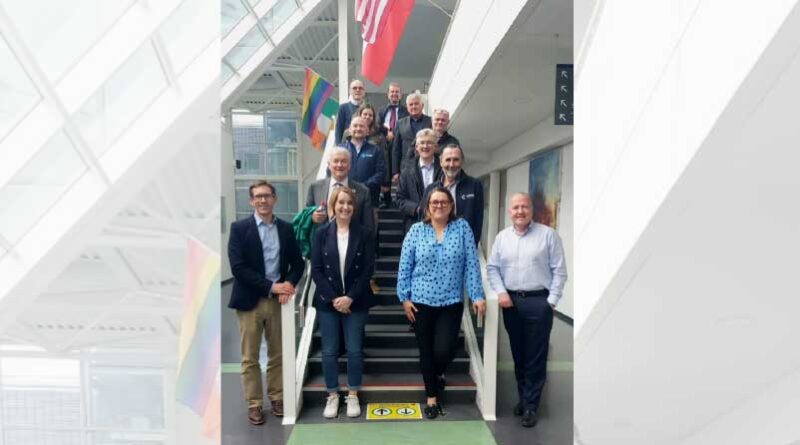Ireland’s First Civil Engineering Apprenticeship’s to bridge engineers shortfall
With a minimum of 3,000 new civil engineers needed to ensure the successful delivery of Project Ireland 2040, the National Development Plan and Climate Action Plan 2019, the Civil Engineering Apprenticeship Consortium with Atlantic Technological University (ATU) have announced a new apprenticeship aimed at Civil Engineering.
Atlantic Technological University (ATU) along with the Civil Engineering Apprenticeship Consortium of key industry stakeholders and employers, has announced the development of a suite of academic qualifications in Civil Engineering, which will be delivered by apprenticeship to address the shortfall in the industry for qualified civil engineers. The development of these programmes is being supported and funded by the National Apprenticeship Office in a bid to attract new entrants into the profession and satisfy a growing demand for learning through apprenticeship.
ATU acting as the co-ordinating provider, is working alongside educational providers and TU’s across Ireland, industry partners, and Engineers Ireland to develop a full suite of programmes from Level 6, Higher Certificate, to Level 9, Masters. This collaborative approach will ensure the new programmes will leverage best practice and have national reach. It is envisaged that these programmes will be rolled out in two phases. Phase one will include the Higher Certificate (Level 6) and the BEng degree (Level 7) in Civil Engineering and is forecasted to have its first intake in September 2023, subject to validation. Phase two will include the BEng (hons) Level 8 as well as an MEng (Level 9) in Civil Engineering with a forecasted intake in September 2024.
The Civil Engineering Apprenticeship Consortium was formed almost one year ago by ATU Sligo and is made up of key national organisations and stakeholders such as Engineers Ireland, the Construction Industry Federation (CIF), Irish Water, the Local Government Management Agency (LGMA), The Association of Consulting Engineers of Ireland (ACEI) and Transport Infrastructure Ireland (TII). Chairing the consortium is John Murphy, CEO of Murphy International and former president of the Civil Engineering Contractors Association (CECA). On the announcement of the funding, Mr Murphy said that “this strategically important initiative will help address the huge deficit in civil engineering talent and support key initiatives such as the National Development Plan, which is essential to the objectives under Housing for All. Training and education, upskilling and continuous professional development are key to the health of the sector and this professional apprenticeship will provide a means of tackling the skills shortage being observed.”
Eamonn Stapleton, President of the Civil Engineering Contractors Association and member of the Consortium believes “this is an excellent and much needed route to becoming a professionally accredited, internationally recognised Civil Engineer. It will provide a way to “earn and learn” and help attract more young people into the industry, while also providing a new career path for current employees within the industry.”
George Farquhar, Engineering Services Manager with Irish Water previously experienced an apprenticeship during his early career and added, “I wasn’t ready for college when leaving school and it gave me working experience and opportunity to learn at the same time. This provided me a great platform to give me a career path, it’s a great model which is growing in popularity’.
Úna Parsons, Head of College, ATU Sligo added; “Professional apprenticeships are a growing alternative to the traditional route to a third-level education qualification and are necessary to attract the scale and diversity of candidates needed into industries such as civil engineering and construction. We are thrilled the government recognises the value of these schemes and its support will help employers and job entrants alike. ATU have many years of experience in traditional and professional apprenticeship programmes. In addition, they have been successfully delivering online learning and training in Ireland for over 20 years, which makes us an ideal partner and coordinating provider. This partnership will build on ATU’s strong track-record of collaboration already in place with the civil engineering and construction sector”
For further information about civil engineering apprenticeship, please contact the consortium secretary, Dr Emma Britton at emma.britton@atu.ie.
Pictured are members of the Civil Engineering Apprenticeship Consortium and the Programme Development Committee at ATU Sligo recently.


